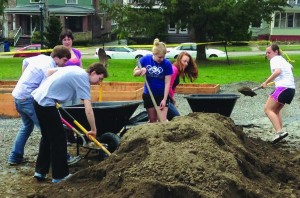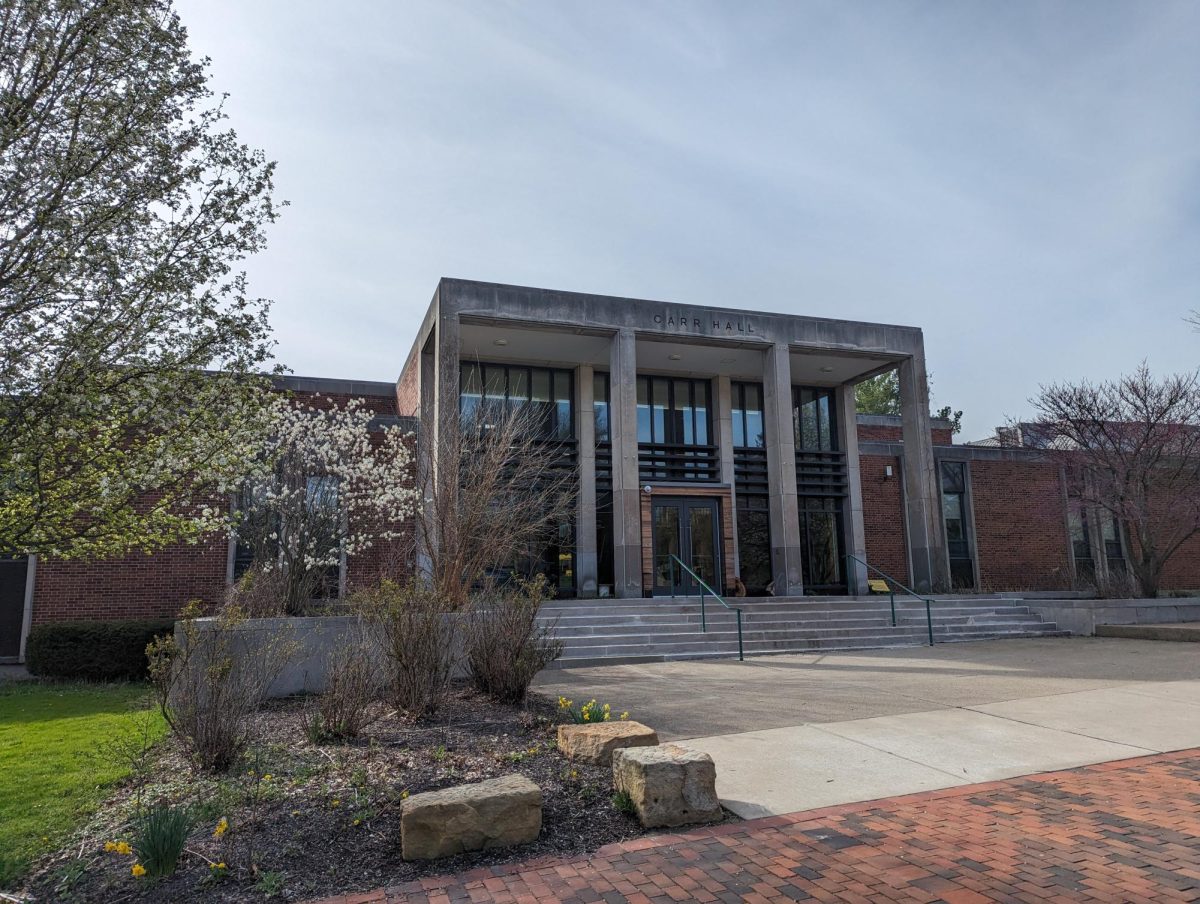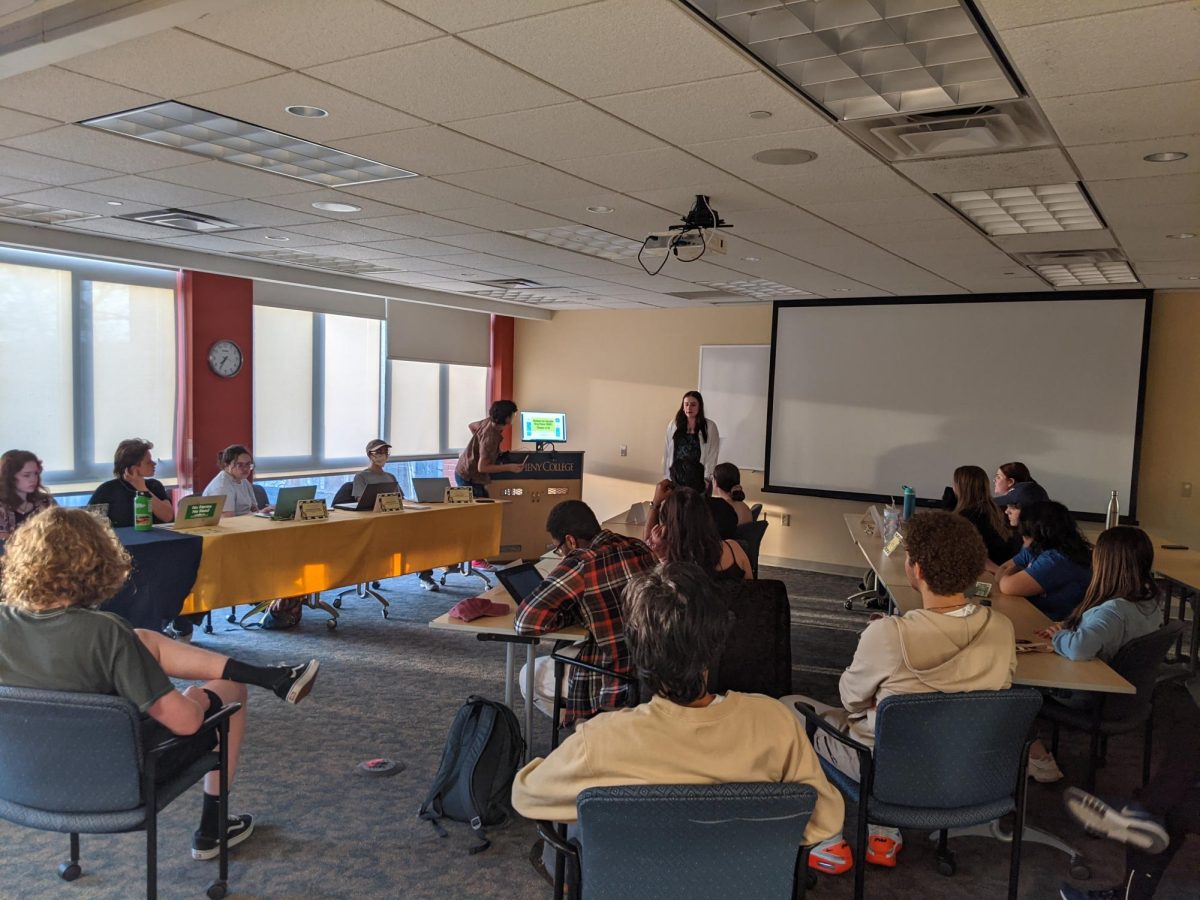Many people have noticed the construction going on alongside Carr Hall.
But not everyone knows that the construction is for a garden, cleverly called the “Carr-den.” The original plan, including the location and the selection of crops for the garden, was a product of assistant environmental science professor Kate Darby’s 2012 junior seminar.
Professor of Environmental Science Eric Pallant explains that there are two main purposes for the garden: to provide local food for the dining halls on campus and to provide a place for environmental science classes to gain hands-on experience with sustainable agriculture, soil quality testing, and garden maintenance.
The Carr-den will be an organic garden that will grow a large number of crops in a small area of space.
Some of these crops include onions, tomatoes, eggplant, lettuce, leeks, peas, kale, chard, blackberries, raspberries and blueberries. In collaboration with Parkhurst Dining Services’ plan to buy 25% of their foods locally, a large percentage of the food produced from the garden will end up being served in one of the two dining halls on campus, thus directly benefiting the students and campus community.
“Parkhurst is very excited about the partnership with the Carr-den,” explains student volunteer Jennifer Glen, ’15. “I am very, very excited about the garden.”
Garden Manager Kirstin Martin explained the importance of providing locally grown produce at Allegheny College. “Getting more local produce in the dining halls is really important not only because it tastes better, but [because] it is better for our carbon footprint. Growing food here and taking it 100 feet down the road is great.”
Many students forget, or don’t even know, about the smaller garden areas around campus.
For example, there is an herb garden behind Brooks that provides some herbs for the food we eat. The Carr-den is just taking that idea and expanding on it with more variety and more crop yield.
In addition, the compost from the dining halls is taken to the composter located near Robertson Field. The compost will be tilled into the soil. Essentially, the waste from the food produced by the garden will help fuel the growth of new food.
Environmental science classes will use the Carr-den in the future to study the soil quality of an organic garden, the different insects attracted to the garden by certain plants, and other agricultural topics. With the implementation of this new garden, the environmental science department will be able to better incorporate agriculture into the curriculum.
Programs similar to this one are currently being added to environmental science departments across the country, at schools such as Dickinson College, Oberlin College, Mercyhurst College, Chatham University, and Gettysburg College.
Many student volunteers have been digging the garden beds, moving the soil into the beds, and contributing their time and manual labor. One of the major goals of the garden is to make it cost-effective.
According to Martin, the garden should be completed in the very near future and the transplantation of the plants is set to begin within the week. The harvest of early crops is projected to begin in time for Alumni Weekend and Graduation. Over the summer there will be two student employees maintaining the Carr-den, and the produce harvested will be sold to local camps.
In short, the Carr-den, Allegheny’s newest addition, will be providing locally grown, organic food for the dining services and hands-on experience for environmental science students.







agnostic tree • May 1, 2013 at 4:18 pm
This garden was actually kind of an eyesore…. they could ave at least used pavers on the pathway instead of hard pack. It is only going to make a mess….
Shut Down EVERYTHING • Apr 26, 2013 at 1:18 pm
This space would be better used to grow trees. We need to protect our trees!